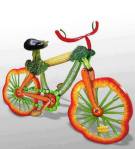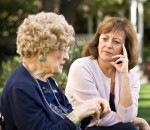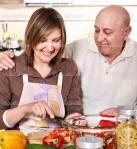 I read a lot of history and it is quite fascinating to see that in the Middle Ages people would die of illnesses and accidents that we can easily fix today. Childhood mortality was extremely high and people in their 50s were considered to be elderly. Over time health care has steadily improved and we are able to prolong life quite substantially with the right treatments. Unfortunately those treatments can come at quite a substantial cost. The question is – can we afford that cost?
I read a lot of history and it is quite fascinating to see that in the Middle Ages people would die of illnesses and accidents that we can easily fix today. Childhood mortality was extremely high and people in their 50s were considered to be elderly. Over time health care has steadily improved and we are able to prolong life quite substantially with the right treatments. Unfortunately those treatments can come at quite a substantial cost. The question is – can we afford that cost?
Let’s think about where that money could come from. It could ideally come from health insurance. Many of us get this type of health insurance through our jobs but as contract and freelance employment becomes more common many of us will have to provide our own insurance. Also be aware that insurance will only cover part of the costs of procedures. Further, insurance may deny coverage for certain procedures. Your doctor may therefore recommend a course of action and insurance may deny coverage for it. Your choices are to pay for it yourself or do without.

If you don’t have insurance then your health care coverage will have to come from your personal resources. The sad fact is that one illness can wipe out even healthy bank and investment balances. I have heard for example, of one professional who had to sell his own house to pay for his wife’s medical expenses. Ironically he was a healthcare professional himself. Luckily he had a house but what now? Where does he live? I know of other cases where spouses and family members have been left quite destitute as a result of paying for health care. In some cases they are quite elderly themselves – what do they do now?
Without either health insurance or personal resources you are dependent on the state or the goodness of family, friends or well-wishers. These are clearly undependable sources. The state, especially in the Caribbean where I am writing, has limited resources and many demands on those resources. You may find yourself on a long waiting list for treatment or may not be able to get it at all. Friends and family do love you but they are likely to have their own financial challenges. A son or daughter may have to choose between caring for Mom’s cancer treatment or their child’s tertiary education. They may even be battling their own illnesses at the time and be unable to assist. Many family arguments stem from the decisions of one spouse to assist an ailing parent while the other one prefers to use the money otherwise. Arguments may also arise between siblings as one or more feel that others are not pulling their weight. In addition to the trauma of illness there is therefore the trauma of tension, stress, conflict and ill feeling in the family.

Enough of the depressing possibilities. What can we do?
First of all we can increase our health insurance as much as possible. Take out additional policies while you are relatively young to take advantage of lower premiums. If you know of good policies that your parents or older relatives may benefit from, suggest that they invest in them. If they lack resources consider whether it might be cheaper in the long run for you to pay the policies on their behalf to ensure that they have the coverage that they need.
Secondly, save and invest aggressively. Health care is more expensive than you think and you will need a good cushion. Again, try to assist your older family members in their own decision making and savings. Many of them will have their money in low yield savings accounts when there are safe alternatives that would provide them with much better interest rates.

Thirdly, manage your health as best as possible. There is lots of advice out there about what to do to prevent many of the lifestyle diseases. Follow that advice as well as you can and try to monitor the health of your older relatives as well as you can.
Finally, have a plan for your own health care. Deciding whether you want your family to prolong your life at all costs and committing that to writing will make it easier for all concerned. Yes – we can live longer but only if we can afford to.




























